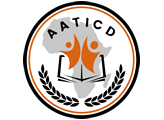Why Attend
HR administrators and officers are constantly requested to expand their existing knowledge and skill set. This course has been developed to enrich the HR professional’s knowledge in the areas of organizational structures, organizational systems, HR reporting, legal documentation and employee policies. In addition the course provides an extensive body of knowledge on the competencies required for successful HR administrators.
Course Methodology
To provide a more practical element to the course, participants are required to develop an employee handbook and an organization structure using computer stations provided by Meirc. In addition, a live demo of an HR system will be provided in order to highlight major features and develop a system’s business requirements.
Course Objectives
By the end of the course, participants will be able to:
- Identify the role of HR administrators within the HR structure of their organization
- List and develop competencies required for successful HR administrators
- Distinguish between various types of organizational structures and develop structures using Microsoft visio
- Describe the core functions of HR systems and determine business requirements for their organization’s HR system
- Develop HR reports using different types of graphs and templates
- Select legal documents required to collect and maintain for employees.
- Create their organization’s employee handbook
Target Audience
HR administrators and officers who wish to develop their knowledge and improve their HR administration skills.
Target Competencies
- Deciding and initiating action
- Relating and networking
- Applying expertise and technology
- Following instructions and procedures
- Planning and organizing
- Achieving goals and objectives
Location:
South AfricaTraining Dates:
Each course starts every Monday of each week. Please book your training on a date that is a Monday.Course Duration:
Unit Standard:
NQF Level:
Number of Credits:
Course Fees
Note: Please fill in the online application form on the left or bottom if this page to receive a quotation with detailed pricing from AATICD.How to Apply:
To Apply Simply Fill in the Online Enquiries / Applications form on the Right Sidebar or Bottom of this website https://www.aaticd.co.zaNB:
When filling the online application form; please take note of your desired Training Month, Duration in Weeks and Training Session. This will give us the exact dates you will be attending your classes.Also note that Tuition Fees must be paid upfront on or before training start date. This is to ensure that all resources are made availabe for you before you start. You will not be allowed into training if fees are not paid and verified.
Also note that Tuition Fees Cancellations must be made 14 business working days before the starting date of training. This will allow us to do a 50% refund of the total amount paid. If cancellations are made thereafter note that no refund will be made to delegates.
Tuition Fees include teas and lunch as well as either a laptop or tablet which a delegate will take home free of charge.
Tuition Fee DOES NOT include Accommodation, Dinners and other Extra Curricular Activities or Incidentals. Delegates are expected to fund this on their own. AATICD will not be held accountable for any incidents to delegates.
In-House Trainings are also available for 3 or more delegates for any duration. Please consult with our Administration for such In-House training bookings.
Course Outline
- The HR administrator in organizations
- Major roles and responsibilities of HR administrators
- A look at the HR administrator’s job description
- The HR administrator’s position within the HR department
- Professional qualifications as a competitive advantage
- Competencies of successful administrators
- Technical competencies
- Behavioral competencies
- Assessing and developing your competencies
- The evolving role of the HR administrator
- Certifications for administrators
- Introduction to organizational structures
- Definition and purpose
- Types of organizational structures
- Advantages and disadvantages of various structures
- Examples of structures for a number of organizations
- Tools used to draw organizational structures
- Workshop: using Microsoft visio in drawing organizational structures
- Working with Human Resources Information Systems (HRIS)
- The evolution of HRIS
- Functions and features of HR systems
- Determining business requirements
- Developing assessment criteria to be used for evaluating different systems
- Assessing and evaluating existing HR systems
- Workshop: live demonstration and practice using an HRIS
- HR measurements and reporting
- Research terms and techniques
- Frequently used HR metrics
- Calculating HR metrics
- Recruitment metrics
- Retention metrics
- Compensation and Benefits metrics
- Training and development metrics
- Reporting methods and examples: charts and graphs
- Workshop: developing HR reports using bar charts, pie charts and line charts
- Employee documentation and record keeping
- Purpose and objective of record keeping
- Employee files: legal documents to maintain
- Developing an orientation package: documents to provide to new hires
- Policies, procedures and work rules
- Developing an organization’s employee handbook
- Purpose of the handbook
- Sections of the handbook
- the process of developing handbook
- Workshop: draft of employee handbook




